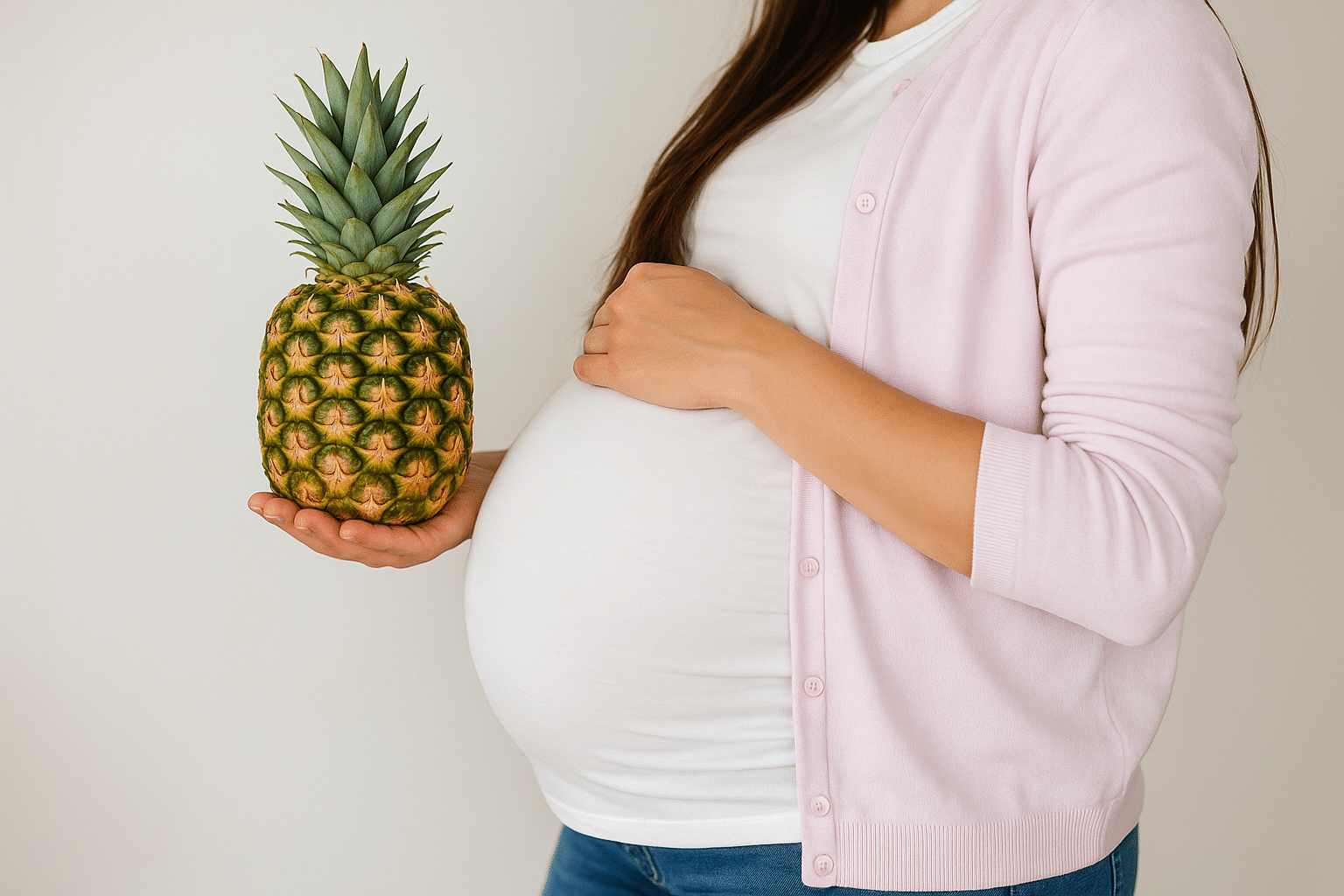Maternity Plan: A Wellness Guide for Expecting Mothers in Singapore
Pregnancy is a meaningful and transformative experience. By having a clear, supportive maternity plan empowers you to navigate it with confidence. At StemCord, we go beyond cord blood banking to help mothers-to-be in Singapore make informed choices for their health, well-being, and peace of mind.
Building a Maternity Plan: The Five Pillars of Pregnancy Wellness
Every pregnancy is different, but caring for these essential aspects of your wellbeing helps ensure a safer, smoother, and more joyful journey for both mama and baby.
Physical Health
Regular prenatal checkups, proper nutrition, moderate exercise, and plenty of rest are key components of a well-rounded maternity plan. Managing weight gain, staying active, and listening to your body can help reduce common discomforts like backaches and fatigue. Knowing how to control weight in pregnancy through gentle activities like walking or prenatal yoga, also helps reduce the risk of complications such as gestational diabetes or high blood pressure.
Emotional Wellbeing
Hormonal shifts can bring mood changes, anxiety, or stress. Supportive relationships, open communication, and mindfulness practices like journaling or meditation can help maintain emotional balance. It’s important to acknowledge your feelings and know that ups and downs are normal. Joining a pregnancy support group or speaking to a counselor can create stronger emotional connections during this transformative time which is a key part of your maternity plan.
Mental Preparation
Understanding what to expect during labor, delivery, and the early stages of parenthood helps reduce anxiety and builds confidence. Preparing mentally is a crucial element of a good maternity plan. This includes attending prenatal classes, talking to experienced mothers, and visualising your birth plan. You’ll also gain clarity on what foods to enjoy or avoid — like questions about can pregnant women eat pineapple or can pregnant women drink coconut water to ensure peace of mind along the way.
Nutritional Awareness
A nutrient-rich diet supports fetal growth and keeps you energized. Staying hydrated, eating smaller meals, and knowing what to avoid or include, such as confinement food recipes and pregnancy-safe options like coconut water, can greatly improve your experience. Incorporating key nutrients like iron, calcium, and omega-3s supports your baby’s development and your own well-being throughout pregnancy.
Planning Ahead
reparing for your baby’s arrival includes more than decorating the nursery. It’s about making thoughtful decisions, from choosing health coverage early to exploring options like stem cord banking and confinement food recipes in Singapore. A complete maternity plan helps ensure you and your baby are well supported — physically, emotionally, and financially, when it matters most.
How to Control Weight in Pregnancy?
Maintaining a healthy weight during pregnancy is essential for the well-being of both the mother and the baby. Here are some key points to consider:
Follow personalised maternity plans
Tailored eating guidelines and fitness advice are crucial for ensuring you gain the right amount of weight during pregnancy. Speak with your healthcare provider to create a plan that suits your needs.
Focus on balanced nutrition
Eat a variety of nutrient-dense foods to support both your health and your baby’s growth. A well-rounded diet is key to meeting both your energy needs and those of your baby.
Incorporate gentle
exercise
Engage in safe, moderate exercises to keep your body fit and active during pregnancy. Always consult your doctor before starting any new exercise routine.
Monitor weight gain
Regularly track your weight and discuss your progress with your healthcare provider to ensure you’re on track for a healthy pregnancy.
Top Confinement Food Recipes in Singapore
Confinement food plays a vital role in postpartum recovery. After childbirth, the body needs extra nourishment to heal, regain strength, and support breastfeeding. Traditional confinement food recipes are specially prepared to promote circulation, warm the body, boost milk supply, and aid womb recovery.
Common ingredients like ginger, black vinegar, dang gui (Angelica root), and wolfberries are valued for their restorative and anti-inflammatory benefits. According to traditional Chinese medicine, a mother’s body is “open” or weakened after delivery, making her more vulnerable to external elements like wind, which may lead to:
• Joint or body aches
• Chills or sensitivity to cold
• Digestive discomfort
• Headaches or long-term fatigue
In Singapore, these time-honoured dishes remain a trusted part of postpartum care, helping new mothers recover holistically through balanced, warming meals.

Sesame Oil
Chicken
Warming and nourishing, made with sesame oil, ginger, and rice wine to boost circulation and expel wind.

Black Vinegar Pork Trotters
Rich in collagen and calcium — ideal for joint recovery and strengthening the body.

Steamed Threadfin Fish with Ginger
A light, protein-rich option that supports tissue healing and digestion.

Stir-Fried Liver with Ginger & Spring Onion
Warming and nourishing, made with sesame oil, ginger, and rice wine to boost circulation and expel wind.
Can Pregnant Women Eat Pineapple?
Yes, pregnant women can safely eat pineapple in moderation. Pineapple is rich in vitamin C, antioxidants, and folate, which support immune function and fetal development. While concerns exist about bromelain potentially inducing labor, this enzyme is mostly found in the pineapple's core and stem, which are typically not consumed.
However, due to its acidity, excessive pineapple intake may cause heartburn or acid reflux, especially in the later stages of pregnancy. Additionally, individuals with gestational diabetes should be mindful of pineapple's natural sugar content and consult with a healthcare provider regarding its inclusion in their diet.
In summary, enjoying pineapple in moderation can be a nutritious part of a pregnancy diet, but it's advisable to consult with a healthcare provider regarding any dietary concerns.
For more information on pregnancy and nutrition, you may explore HealthHub Singapore.

Can Pregnant Women Drink Coconut Water?
Coconut water offers more than just refreshing hydration during pregnancy. Rich in electrolytes like potassium, magnesium, and sodium, along with Vitamin C and fibre, it helps restore fluids, ease digestion, and reduce discomforts such as morning sickness, constipation, and heartburn. Its naturally low sugar and calorie content, together with a low glycaemic index, also make it a healthier choice for expectant mothers mindful of gestational diabetes.
However, moderation is key. Drinking coconut water in excess may cause an overload of potassium, potentially leading to low blood pressure (hypotension) or irregular heart rhythms in sensitive individuals. It may also increase sodium intake, which is not advisable for mothers managing high blood pressure, and too much can cause frequent urination or stomach upset. For most women, one to two glasses a day is considered safe and beneficial, but it’s always best to consult your healthcare provider for personalised advice.
Source from: theasianparent
.source-link {color: #f7f7f7}
.source-link:hover {color: #d7d7d7}

Think Ahead: Cord Blood Banking for Your Baby
While planning your birth and recovery, don’t overlook the importance of cord blood collection. Cord blood is rich in hematopoietic stem cells which have the ability to regenerate to different types of blood cells. These powerful cells have already been used in the treatment of more than 80 diseases¹, including leukemia, lymphoma, sickle cell anemia, and various metabolic disorders. By preserving them, cord blood banking offers future-ready protection that may one day support your child’s health or even that of a family member.
Frequently Asked Questions
Yes, moderate exercise is beneficial during pregnancy. Safe activities include walking, prenatal yoga, and swimming. Our plans provide customised exercise routines tailored to your stage of pregnancy.
Confinement food in Singapore helps replenish nutrients lost during childbirth, promotes healing, and supports breastmilk production. It’s specially prepared to nourish your body and restore energy after delivery.
Controlling weight during pregnancy involves eating balanced meals, staying physically active (as advised by your doctor), and following a structured prenatal care plan.
When eaten in moderation, pineapple can be a healthy addition to your pregnancy diet. It’s rich in vitamin C, which supports your immune system and helps with iron absorption. Pineapple also contains bromelain, a natural enzyme that aids digestion and may reduce bloating. Additionally, it provides antioxidants and manganese, which are important for tissue repair and bone development. Just avoid excessive amounts, as its acidity can cause heartburn in some women.
Source from HealthHub Singapore
Yes, pregnant women can safely drink coconut water on an empty stomach. In fact, starting your day with coconut water can help rehydrate the body, support digestion, and provide essential electrolytes like potassium and magnesium. It’s a natural way to reduce morning sickness, prevent constipation, and maintain fluid balance during pregnancy. Just be sure to choose fresh or unsweetened coconut water, and always consult your doctor if you have any specific dietary concerns.
Source from theasianparent
Yes, customised maternity plans often include nutritional counselling and regular health check-ups, both of which play a key role in how to control weight in pregnancy.
